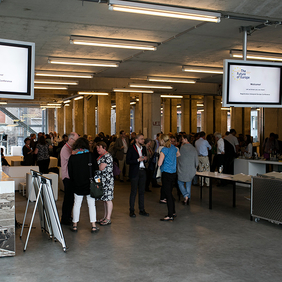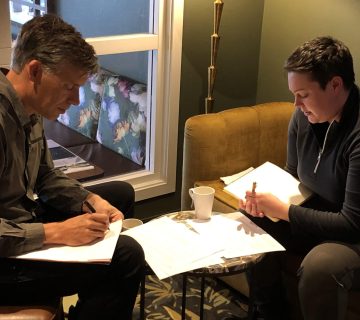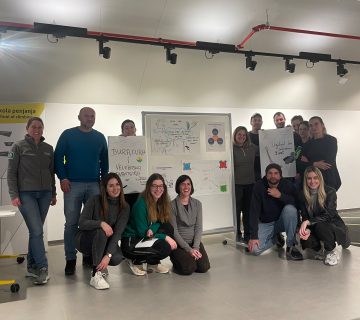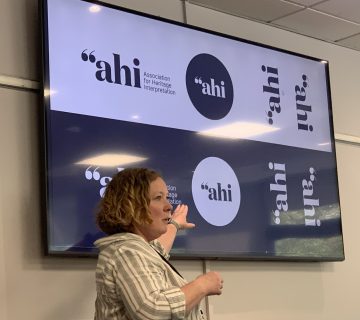IE conferences help to grow the IE network and to increase the acknowledgement of quality heritage interpretation, not only at European but also at regional level. They emphasise the significant roles that natural and cultural, intangible and sensitive heritage play for the ability of people and communities to interpret the past in a way to better manage the future. They bring renowned speakers and professionals from all around the world to your place and help you to get recognised. Last, but not least, they offer an outstanding forum on heritage and interpretation to get into personal exchange and to find partners and friends. At IE conferences, attendees feel the heartbeat of the network and experience the great potential that heritage interpretation has to offer.
IE conferences come to life through a well-balanced combination of keynote addresses, presentations and workshops. They include a ‘Market of ideas’, several side events, and especially a broad range of study visits to renowned and local heritage sites where interpretation practice can be experienced and discussed.
An organising partner for an IE conference should be an experienced corporate or organisation member. Based on a written agreement, it takes responsibility for the organisation of the event from its first announcement until its closing. The organising partner appoints a responsible Conference Manager who must have all required competences and capacities, and who works in close exchange with the IE Conference Coordinator and their team.
Tasks and responsibilities will be clearly divided between IE and the organising partner. IE takes responsibility for the content, including the selection of keynote speakers, the conference theme and strands for the parallel sessions, the review of the papers, and the preparation of the conference proceedings. The organising partner suggests appropriate study visit sites that support the conference theme and staff that meet the expectations of the attendees. It also takes responsibility for the registration and financial management and seeks for financial support of the conference. All gains and losses accrue to and are borne by the organising partner, based on a budget plan discussed and agreed with IE.
The IE Conference 2021 should be announced in May 2020. It should take place in spring 2021, and the minimum preparation time needed from the moment when the venue has been agreed to the actual event is about eight months.
Organisations interested in bidding to be organising partner of the IE Conference 2021 should submit a draft event proposal briefly explaining:
- Capacity and suitability of the potential organising partner for delivering the event
- Description of the potential of the country towards specific themes
- Ideas how the event could help to grow the IE network and foster the reputation of interpretation
- Description of possible venues and their suitability for the successful delivery of the conference
- Proposals for dates for the event
- Proposals for study visit sites to be reached by bus in up to two hours
- Accessibility of the venue by train, plane or car
- Ideas for local partners and potential sponsors
- Suggestions for pre- and post-conference tours in the host country or in neighbouring countries
The proposal should include particular links but does not need to extend more than about two pages. Please submit your proposal by 31 December to IE Conference Coordinator, Bettina Lehnes (bettina.lehnes@interpret-europe.net), who is also ready to answer any further questions.




